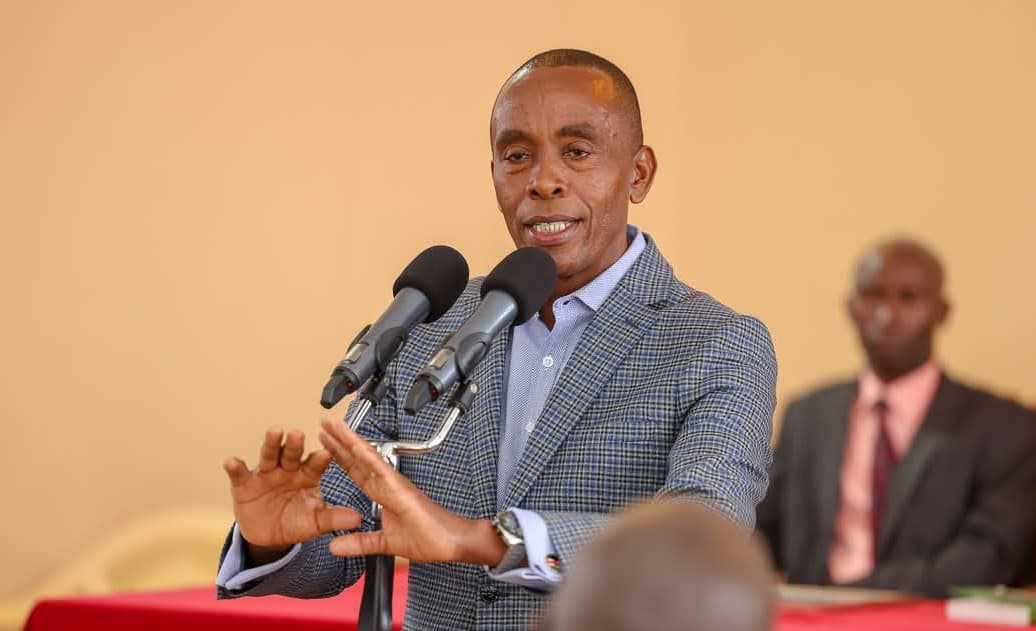We're loading the full news article for you. This includes the article content, images, author information, and related articles.
Kiambu Level 4 Hospital reported no maternal deaths for seven consecutive months, a significant public health achievement overshadowed by ongoing salary arrears and labour disputes with its medical staff.

Kiambu County's Level 4 Hospital has achieved a remarkable milestone, recording zero maternal deaths between January and July 2025. This accomplishment, lauded by Governor Kimani Wamatangi, highlights strengthened health service delivery within the county, including the deployment of 19 fully equipped ambulances and a dedicated maternity ambulance. However, this public health success is set against a backdrop of persistent labour disputes and delayed salary payments for doctors, raising concerns about the sustainability of such achievements.
The Kenya Medical Practitioners, Pharmacists and Dentists Union (KMPDU) has accused the Kiambu County government of failing to address chronic salary delays, inadequate medical coverage, and stagnation in career progression for its doctors. Doctors in Kiambu County reportedly receive their salaries on or after the 17th of the following month, with some experiencing delays of over 30 days in August 2024. The county has also been cited for late remittance of premiums to the Social Health Authority (SHA).
Maternal mortality remains a critical public health challenge in Kenya. The national maternal mortality ratio (MMR) was 355 deaths per 100,000 live births in 2022, according to the Kenya Demographic Health Survey. While this figure is a concern, some counties have shown significant progress. Makueni County, for instance, has reported zero maternal deaths caused by postpartum haemorrhage (PPH) since 2022, attributing this to innovative practices like Heat-Stable Carbetocin and calibrated drapes. Homa Bay County has also reported zero maternal deaths over the last five years, a feat attributed to unified action among leadership, health workers, and communities.
The devolution of healthcare in Kenya has been a double-edged sword. While it aimed to bring services closer to the people, it has also led to inconsistencies in healthcare worker management across counties, including salary disparities and delayed payments. The KMPDU has frequently engaged in industrial action to advocate for better terms for its members, with doctors often working long hours with limited resources.
The Constitution of Kenya guarantees the right to health (Article 43) and the right to fair labour practices (Article 41). The KMPDU argues that the Kiambu County government's actions violate these fundamental rights by failing to adequately remunerate doctors and provide conducive working conditions. The union has consistently pushed for the full implementation of the 2017 Collective Bargaining Agreement (CBA) and the 2024 Return-to-Work Agreement, which outline doctors' salaries and working conditions.
Kiambu Governor Kimani Wamatangi, while acknowledging the achievement of zero maternal deaths at Kiambu Level 4 Hospital, has maintained that the county is not obligated to pay striking doctors for services not rendered. This stance has been met with strong opposition from KMPDU Secretary General Dr. Davji Atellah, who has consistently highlighted the systemic failures in governance contributing to the healthcare crisis.
The KMPDU has also refuted claims by the Kiambu County government that the ongoing doctors' strike has not impacted health services, especially concerning infant mortality. While the county insists that neonatal units are fully staffed, reports from the union and some media outlets have alleged a rise in infant deaths during the strike period.
The ongoing disputes between county governments and healthcare workers pose a significant risk to the gains made in public health, such as the reduction in maternal deaths. Sustained industrial action can disrupt essential services, undermine patient trust, and ultimately compromise the goal of Universal Health Coverage (UHC) in Kenya. The lack of consistent and fair remuneration for doctors can lead to demotivation, brain drain, and a decline in the quality of healthcare services.
While Kiambu County celebrates its maternal health achievement, the exact impact of the doctors' strike on overall health service delivery, particularly on infant mortality rates, remains a point of contention. The KMPDU has alleged a significant number of infant deaths during the strike, claims that the county government has vehemently denied. Independent verification of these figures is crucial to provide a balanced understanding of the situation.
The national government, through the Ministry of Health, has made progress in settling long-standing salary arrears for doctors, with the final batch of 2017-2024 arrears released in September 2025. The KMPDU is now pushing for the full payment of 2024-2025 arrears and the implementation of updated salary scales on payslips. The union has also challenged county governors to promote deserving doctors and provide functional medical cover to ensure industrial harmony.
The coming months will be critical in observing how county governments, particularly Kiambu, address the outstanding grievances of doctors. The KMPDU's continued advocacy for fair labour practices and the government's commitment to implementing existing agreements will determine the stability of Kenya's healthcare sector. The impact of these labour disputes on key health indicators, such as maternal and infant mortality, will require close monitoring.
The broader context of healthcare worker remuneration and working conditions across Kenya's 47 counties continues to be a recurring theme in national discourse, with various counties facing similar challenges in retaining and motivating their medical staff.
Keep the conversation in one place—threads here stay linked to the story and in the forums.
Sign in to start a discussion
Start a conversation about this story and keep it linked here.
Other hot threads
E-sports and Gaming Community in Kenya
Active 9 months ago
The Role of Technology in Modern Agriculture (AgriTech)
Active 9 months ago
Popular Recreational Activities Across Counties
Active 9 months ago
Investing in Youth Sports Development Programs
Active 9 months ago